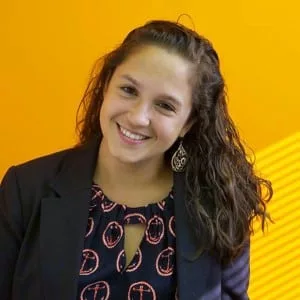
Home » Washington becomes first state to license legal technicians
Washington becomes first state to license legal technicians

January 14, 2016
In May of 2015, Priscilla Selden of Wenatchee and others passed an eight-hour licensing exam, moving one step closer to becoming the first Limited License Legal Technicians in the country. The state’s new Limited License Legal Technician is a new professional designation that authorizes them to advise clients and file documents in family law court in the state of Washington.
Selden has worked as a paralegal for 25 years, but had been laid off. She saw getting the license as a great opportunity.
“I was increasing in professional experience and skills in the field, and having that autonomy was attractive to me,” she said. “When the rule was adopted and the education program was ramping up, I had been laid off from a job and was wondering what I would do next, I thought I was going to go on this path and see how far I could get.”
Now Selden runs her own practice helping low- to median-income families with legal matters.
“It is really rewarding to provide legal services to people who otherwise wouldn’t be able to afford them,” she said. “Some people are really grateful.”
Last year, the state of Washington became a pioneer in the justice system by being the first state to train, license, and regulate legal technicians. This new breed of legal professional are trained and licensed to advise and assist people going through divorce, child custody and other family-law matters in Washington.
Think of them as the nurse practitioners of the legal field. They can provide limited legal services and legal advice without the supervision of a lawyer, which means some of them even have their own practice.
Legal technicians can’t go to court, negotiate on behalf of a client or handle real estate property or assets in a divorce. But when a divorce is amicable, a legal technician is all that is needed.
The legal technician program came as the state judicial system’s response to findings found in Washington’s 2003 Civil Legal Needs Study.
The study describes the justice gap experienced by the state’s low to moderate-income residents, who were representing themselves in divorce proceedings, discrimination complaints, and even landlord and tenant disputes.
The study found that 80 percent of people in low-income households were representing themselves, or seeking help from unlicensed individuals working outside the system.
“This helps us be assured that their legal needs are monitored and regulated, and to prevent ultimately the unauthorized and unqualified practice of law,” said Paula Littlewood, executive director of the Washington Bar Association. “The main goal is consumer protection and access to justice.”
Steve Crossland, a Cashmere-based attorney who helped write the rule allowing for the new tier of legal service providers, said there was an incredible unmet need for accessible legal services.
Eventually, the state hopes to expand the legal technician program so that legal technicians can also work on elder law, landlord tenant law and immigration law. They also hope to expand the legal technician's role in court to handle simple matters such as explaining how certain forms were filled out.
The requirements to become a legal technician are rigorous, said Crossland. To be eligible the candidate must have an associate level degree or higher and complete 45 credit courses of curriculum through an ABA-approved law school or paralegal program.
After that is complete, the candidate must also take practice area courses with curriculum developed by an ABA-approved law school. The schools currently offering those courses are University of Washington and Gonzaga.
After all those requirements are met, they must pass a qualifying exam and clock 3,000 hours of experience under the supervision of a licensed attorney.
“We developed a curriculum that really fits what we need in order to give them skills and knowledge they need,” said Crossland.
Crossland said many attorneys are now paying for some of their paralegals to become legal technicians. For those who decide to open their own practice, he envisions a sort of referral program where legal technicians refer attorneys for proceedings they can’t take on themselves.
“It would also bring work into the firm that wouldn’t have come in otherwise because of high cost of attorney fees, when the limit of authorization kicks in, the lawyer would step in,” he said.
Littlewood said that since legal technicians are fairly new in the marketplace, and only a handful practice throughout the state, it’s difficult put a price tag on their services just yet. But, she does say many end up charging $60 to $80 an hour for services, others opt for a flat fee.
Crossland said that in Eastern Washington only Spokane Community College is ABA-approved to offer the requirements needed to become a legal technician. He is working with several other community colleges in order to introduce the program in their course offerings.
“There is a huge potential for community colleges to train legal technicians that would stay and serve their communities,” he said. “We’re seeking to expand that, currently there are only four throughout the state.”
There are currently no legal technicians practicing in Benton or Franklin counties, but that may soon change.
More information and a directory of state licensed legal technicians can be found at www.wsba.org.
Local News Legal
KEYWORDS january 2016





